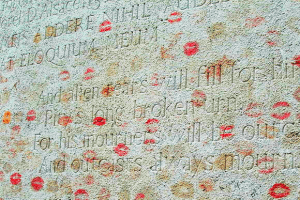Alex Dean in Prospect:
 Nearly 120 years after his death, Oscar Wilde’s works continue to delight with their brilliant paradoxes and comic twists. His children’s stories, poems and political essays captivate us today just as they captivated his contemporary audience. The Picture of Dorian Gray has become a haunting classic. And a successful season of his plays at the Vaudeville Theatre culminates with Wilde’s greatest work, The Importance of Being Earnest, which starts on 20th July.
Nearly 120 years after his death, Oscar Wilde’s works continue to delight with their brilliant paradoxes and comic twists. His children’s stories, poems and political essays captivate us today just as they captivated his contemporary audience. The Picture of Dorian Gray has become a haunting classic. And a successful season of his plays at the Vaudeville Theatre culminates with Wilde’s greatest work, The Importance of Being Earnest, which starts on 20th July.
Then, of course, there is the Irish writer’s remarkable personal story. His tragic fall after his humiliating trial for “gross indecency” is a story as famous as any of his plays—perhaps more so. Wilde’s story has become a legend, retold a thousand times in books, on stage and screen. But Nicholas Frankel, a respected Wilde scholar, is sceptical of such myth-making. Oscar Wilde: The Unrepentant Years takes the story of Wilde’s demise and turns it on its head.
The conventional view is that after his release from Reading gaol in 1897, Wilde was “a broken, tragic figure” languishing in self-pity, and pining for his ex-lover Lord Alfred Douglas.
More here.
